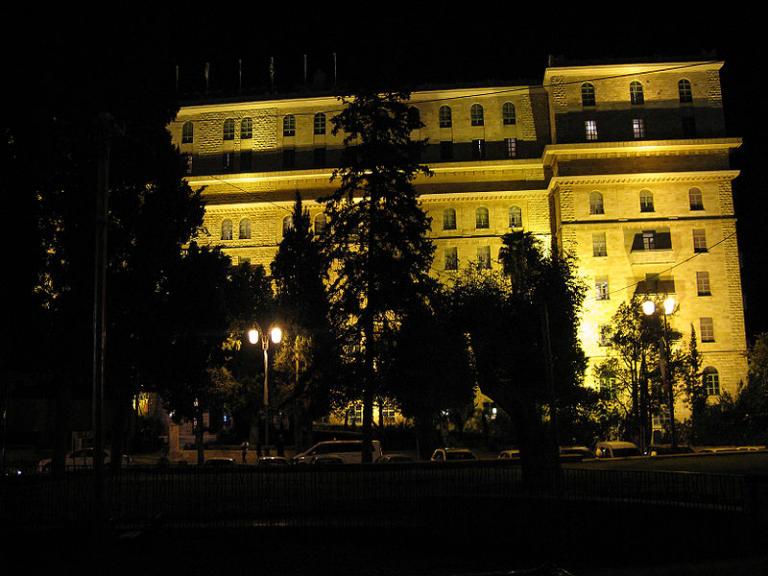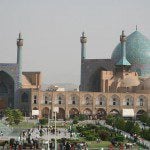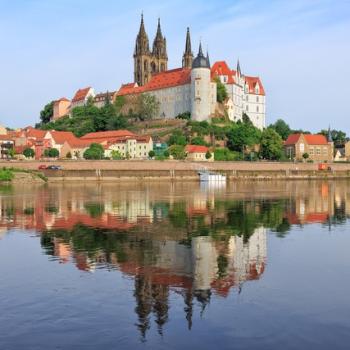
In my immediately prior post (“A Prolegomenon to My First Sojourn in the Middle East”), I provided some indication of the reflexively pro-Israeli attitudes with which I grew up.
By the time of my first actual visit to the Middle East, however — a 1978 visit that lasted approximately six months — things had changed considerably.
For one thing, the Soviet-leaning Gamal Abdel Nasser of Egypt had died suddenly in 1970 and had been replaced by Anwar Sadat. Sadat, in turn, had expelled most Soviet military and other advisors from Egypt and, after the 1973 October War (or “Yom Kippur War”), had actually, dramatically, visited Israel and addressed the Israeli Knesset in November 1977. (The Camp David Accords would be signed on 17 September 1978.)
But I had also changed. I had developed a strong interest in Arabic and in the history of the Arabs, and my readings on the subject — most of them “extracurricular” — had, to put it mildly, substantially dimmed my idealistic and uncritical support of Israel and Zionism. I was especially influenced by a 1965 book entitled The Decadence of Judaism in Our Time, written by Moshe Menuhin, a Jewish anti-Zionist and the father of the great violinist Yehudi Menuhin.
Among other things, I had learned about Menachem Begin and the Irgun, whose connection with such events as the 22 July 1946 bombing of the King David Hotel and the 9 April 1948 massacre of the Arab village of Deir Yassin I regarded (and continue to regard) as horrifically immoral. I was shocked when I realized in 1976 that Menachem Begin was still active in Israeli politics and, indeed, a member of the Knesset. (I recall thinking that it was almost — please note the almost — as if, say, Joseph Goebbels were still alive and still a member of the German Bundestag.) When Mr. Begin was elected prime minister in 1977, I was absolutely stunned.
So I think it fair to say that, by the time I had arrived in Jerusalem in 1978, I was a convinced critic of Zionism and of the Israeli regime.
Accordingly, living in predominantly Arab East Jerusalem suited me just fine. I really liked several of the people — all Palestinian Arabs — on the staff of the Vienna Hotel, where we stayed for the first half of our time there. I enjoyed walking the streets of East Jerusalem and in the narrow lanes of the Arab quarter of the Old City and in the Christian quarter, which was and is also mostly Arab. I developed friendships with several of the shopkeepers. To this day, when I visit Israel, most of my time is spent with Arab bus drivers, Arab merchants, Arab waiters, Arab hotel staff, and Arab guides, a number of whom I count as friends. I’ve been in their homes over the years, spent time with their families.
But my views have moderated quite a bit since the late 1970s. And — did I mention this? — I’m older. I think that a correction in my views from the starry-eyed uncritical Zionism of my youth was necessary, but I also think that I overcorrected. I have friends on both sides now, and sympathy for both. Even sorrow for both. A enormous injustice was done to the Jews in Europe during the 1930s and 1940s, but an injustice was also visited upon many Palestinian Arabs by the influx of European refugee and later-immigrant Zionists. Unfortunately, many Palestinians have responded with vengeful injustices of their own. And not a few Israelis have responded in kind. As someone who has come to know many stories from the region, I find it all painfully sad.
I had never fully lost my sympathy or my admiration for Israel. Today still, I’m far more pro=Israel than are the overwhelming majority of (non-Israeli) Arabists. (My religious views and my political principles both see to that.) In any group where the sentiments are pro-Arab, I’m likely to be the one who speaks up in defense of Israel. But, similarly, in any group where the sentiments tend in the pro-Israeli direction, I can be counted on to speak up in defense of the Palestinians. And that’s right where I think I ought to be.












